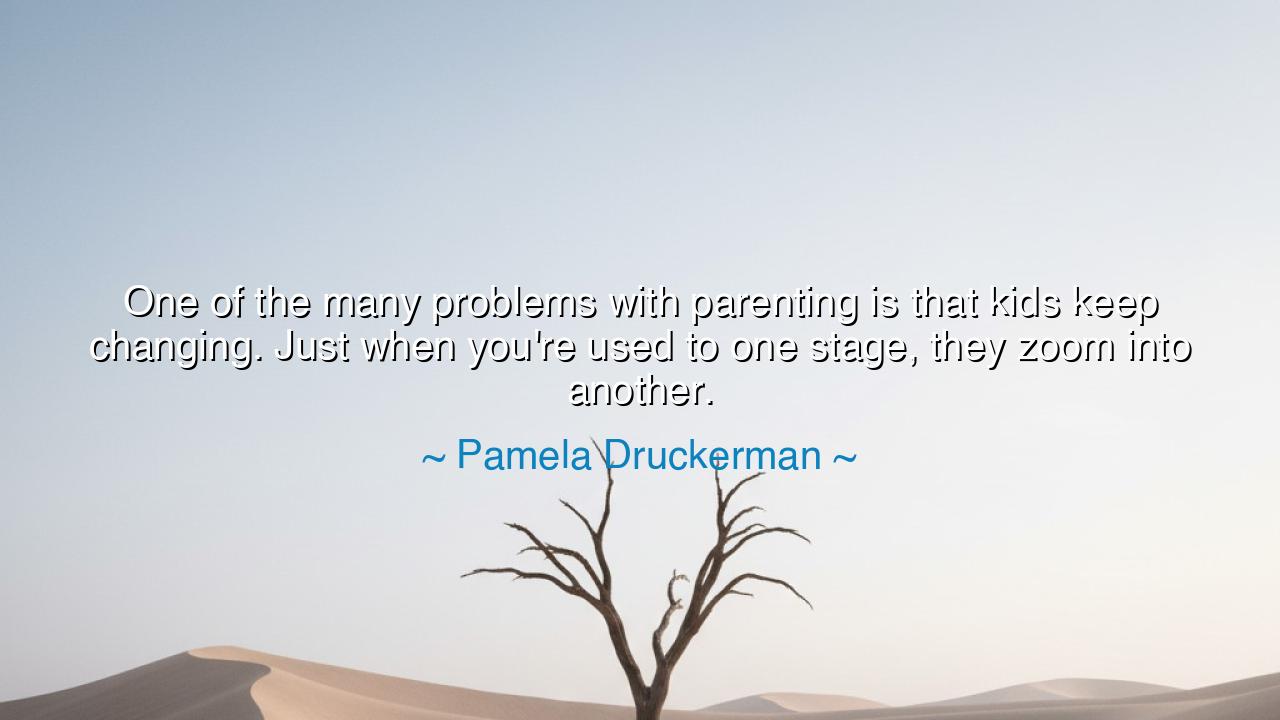
One of the many problems with parenting is that kids keep
One of the many problems with parenting is that kids keep changing. Just when you're used to one stage, they zoom into another.






Pamela Druckerman, with the wit of a keen observer and the tenderness of a parent, once declared: “One of the many problems with parenting is that kids keep changing. Just when you’re used to one stage, they zoom into another.” In these words, she captures the very essence of parenting—that it is a journey without permanence, a river that never stands still, a dance where the rhythm shifts just as you learn the steps. To raise a child is to be forever surprised, forever challenged, and forever humbled by the swift passage of time.
The origin of this thought lies in Druckerman’s reflections on family life, especially her writings on parenting across cultures. She noticed that parents everywhere, no matter how wise or experienced, face the same bewilderment: the child who once needed them in one way suddenly needs them differently. The infant becomes a toddler, the toddler becomes a child, the child becomes a youth—and each stage comes with new joys and new tribulations. By the time a parent has adjusted, the stage has passed, and the work begins anew.
History gives us countless examples of this truth. Think of Queen Victoria, who as a young mother once confessed that she found the endless needs of infants overwhelming. Yet by the time she had mastered the art of caring for babies, her children had grown into rebellious youths who tested her patience and authority in new ways. The challenges she faced shifted like the wind, and though she was a queen, she found herself as vulnerable as any mother, caught in the eternal truth Druckerman describes: children change faster than parents can keep pace.
Her words also speak to the paradox of love and loss. Each stage of a child’s life brings joy—the first steps, the first words, the first signs of independence. Yet with each stage’s passing, the parent must grieve a little, for the child they knew is gone, replaced by a new version of the same soul. It is this constant shedding and becoming that makes parenting both beautiful and heartbreaking. The parent’s task is not only to guide, but to let go, again and again, with every stage that passes.
And yet, in this constant change lies a profound teaching. Parenting is not about mastering one stage forever, but about learning flexibility, humility, and resilience. The true parent is not the one who has memorized every rule, but the one who can adapt with grace, who can hold their child firmly enough to guide and loosely enough to allow growth. The art of parenting is, therefore, the art of change—accepting that what worked yesterday may not work today, and that tomorrow will ask something new.
The lesson for us is clear: embrace impermanence. Do not cling too tightly to the stage you love, nor despair too deeply in the stage you find difficult, for both will pass sooner than you imagine. Instead, walk with attentiveness, savor the moment, and be willing to change with your child. Just as the river shapes the stone through constant movement, so the ever-changing child shapes the parent, teaching patience, adaptability, and love that is deeper than familiarity.
Therefore, let Pamela Druckerman’s words be remembered: “Kids keep changing… just when you’re used to one stage, they zoom into another.” Let them remind us that to be a parent is to live in motion, to never rest in what is familiar, but to grow alongside the child. And in this growth, parent and child alike are transformed, each stage a fleeting gift, each change a new beginning. For the greatest problem of parenting is also its greatest blessing: that children never stop becoming—and through them, neither do we.






AAdministratorAdministrator
Welcome, honored guests. Please leave a comment, we will respond soon